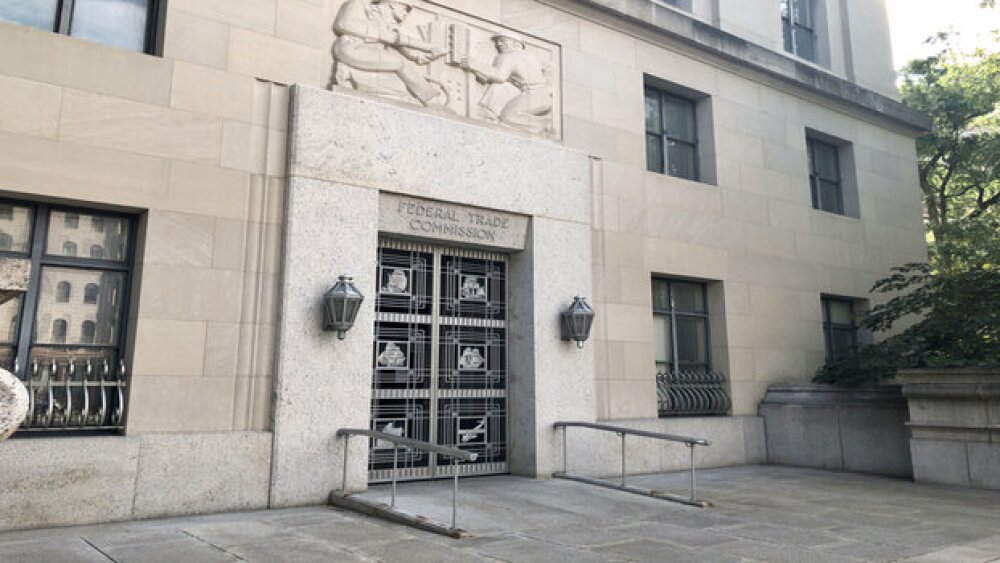The Federal Trade Commission’s increased scrutiny of mergers has now hit IQVIA, whose proposed acquisition of Propel Media has been challenged by the watchdog agency.
Pictured: Doorway at the FTC building in Washington, DC/iStock, FinkAvenue
IQVIA has agreed to delay the closing of its acquisition of online marketing firm Propel Media until November 23 at the earliest, while a district court reviews the Federal Trade Commission’s administrative complaint, according to a report by Endpoints News citing court documents.
The delay follows a lawsuit filed by the FTC last week seeking to block the proposed merger between the two companies, alleging that the deal would sharply reduce competition in healthcare programmatic advertising “by combining two of the top three providers” in the space.
Aside from the administrative complaint, the FTC has also sought a temporary restraining order and a preliminary injunction, preventing both companies from closing the deal until the challenge has been decided on.
IQVIA owns Lasso Marketing, a healthcare marketing and analytics platform that is a dominant player in the programmatic advertising industry. In addition, DeepIntent, a Propel Media company, is also a healthcare advertising provider. Both are specialized service providers, specifically targeting healthcare professionals, and are in direct competition with each other, according to the FTC.
The anti-trust watchdog claims that if it pushes through, the proposed merger will lead to steeper marketing costs for pharmaceutical companies, who could then pass these on to consumers through higher drug prices. The deal could also hamstring innovation in healthcare programmatic advertising, the FTC contends.
“Given the rampant consolidation across the pharmaceutical industry, it’s critical that the market for healthcare product advertising remains competitive to ensure that patients and their doctors have access to high quality, affordable products,” Holly Vedova, director of the FTC Bureau of Competitor, said in a statement.
IQVIA in a statement to Endpoints News said that the FTC’s administrative complaint “fundamentally misunderstands the facts” and that the agency is trying to “inappropriately apply the law.”
The challenge to the IQVIA-Propel Media deal is part of the FTC’s increased scrutiny of mergers. In draft guidelines released last week, the agency revealed that it was broadening the scope of its considerations. While the FTC only previously evaluated direct competition, it will now take into account a company’s negotiating power when looking at the anti-trust potential of deals.
The new guidelines also specifically single out consolidations that would increase consolidation even further in highly saturated markets.
In recent months, the FTC has policed mergers more aggressively. In May 2023, the agency filed a complaint seeking to block Amgen’s proposed $26.4 billion buyout out Horizon Therapeutics, alleging that the former might leverage its top-selling assets to “secure favorable formulary placement” for Horizon’s rare disease therapies.
The FTC has also taken aim at Pfizer’s $43 billion acquisition of Seagen, for which it requested for more information earlier this month.
Tristan Manalac is an independent science writer based in metro Manila, Philippines. He can be reached at tristan@tristanmanalac.com or tristan.manalac@biospace.com.






